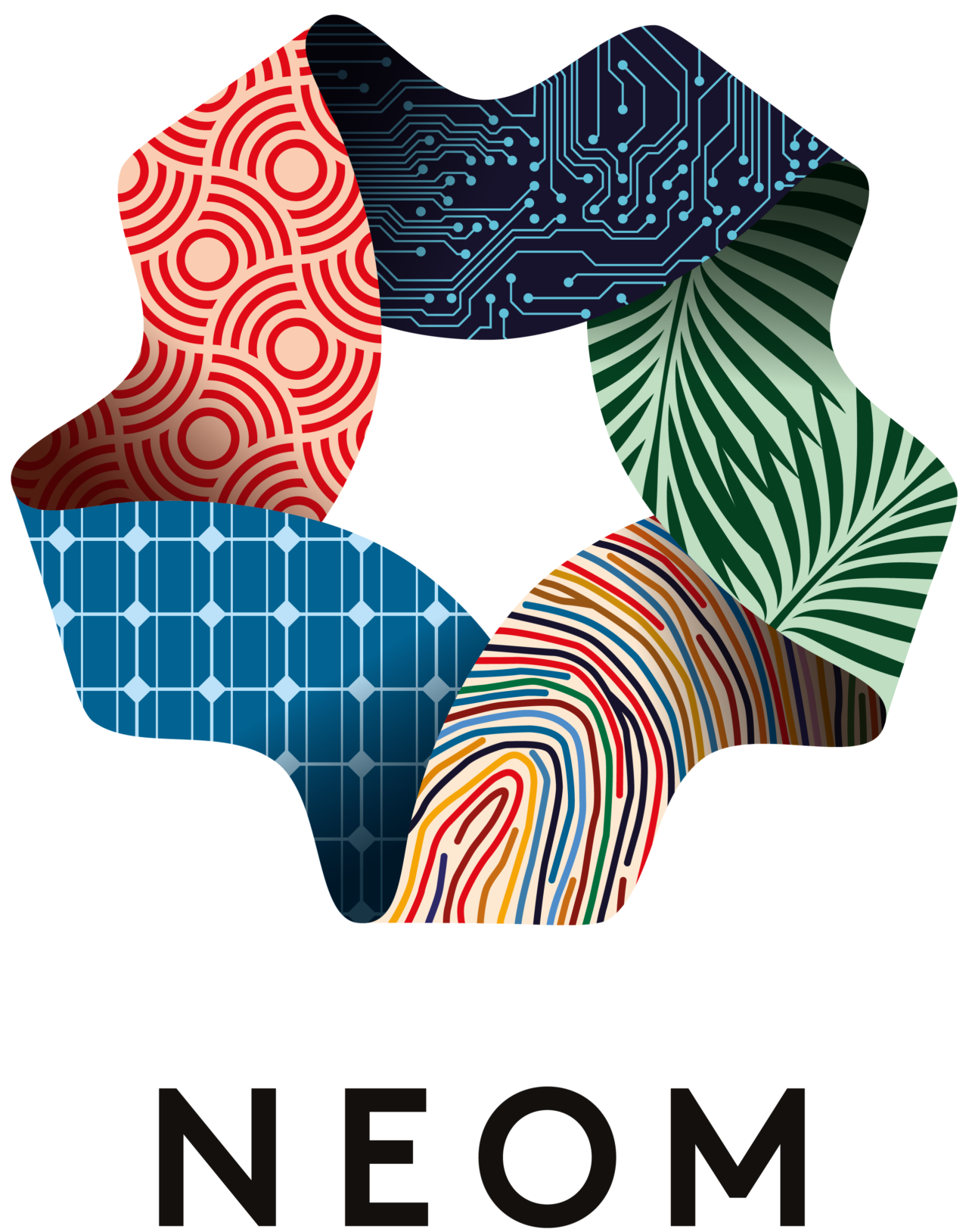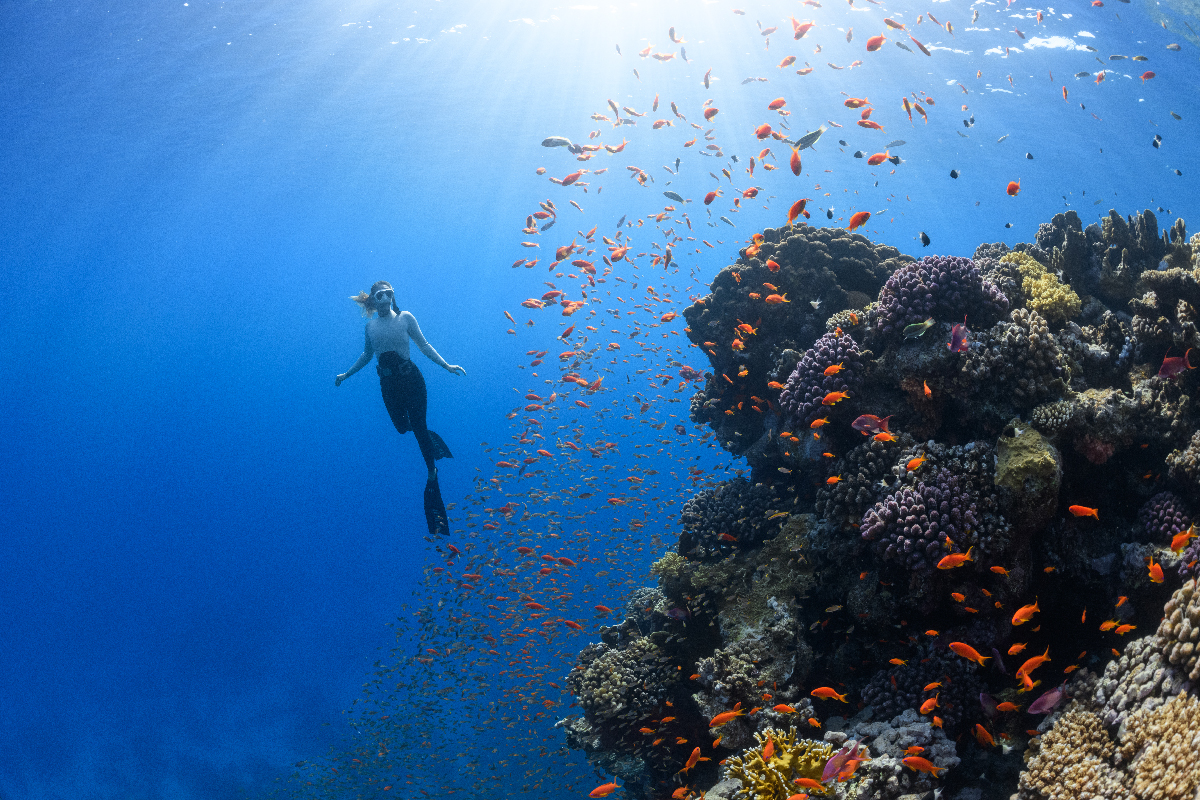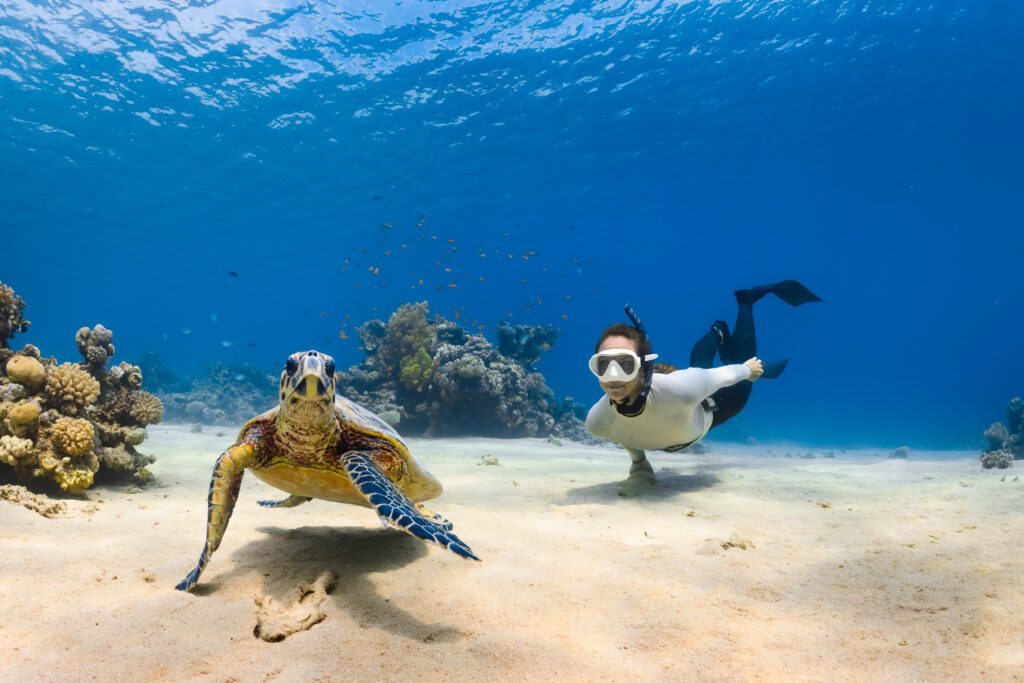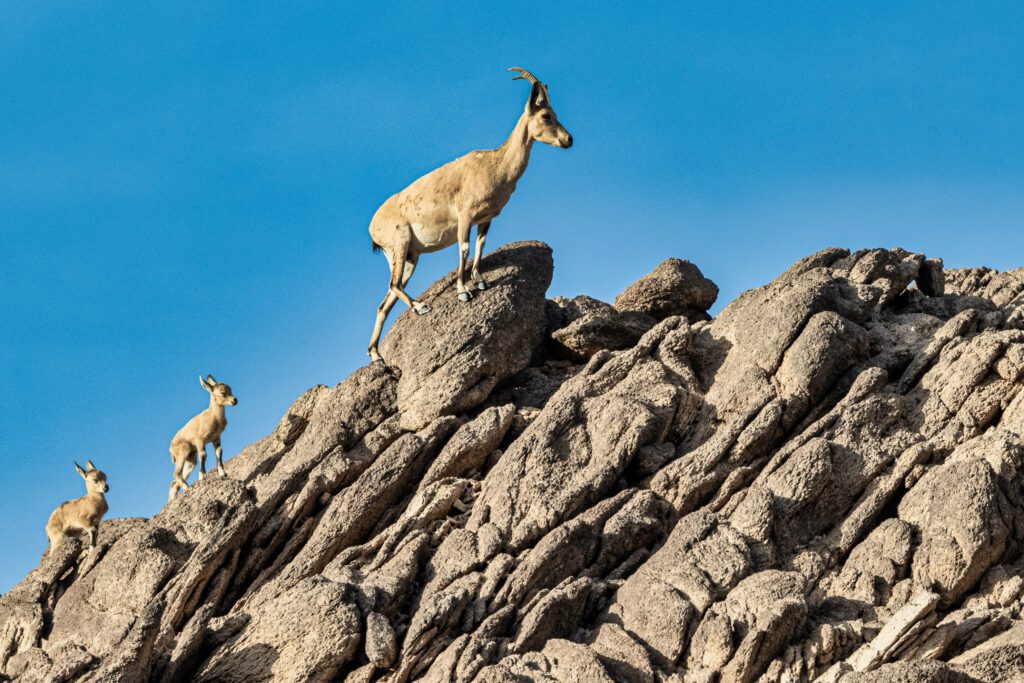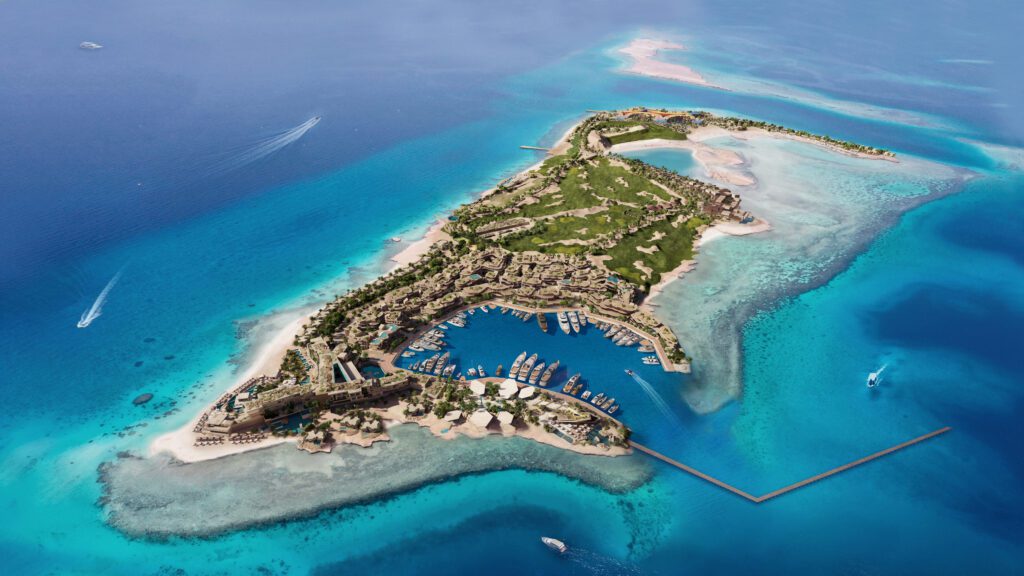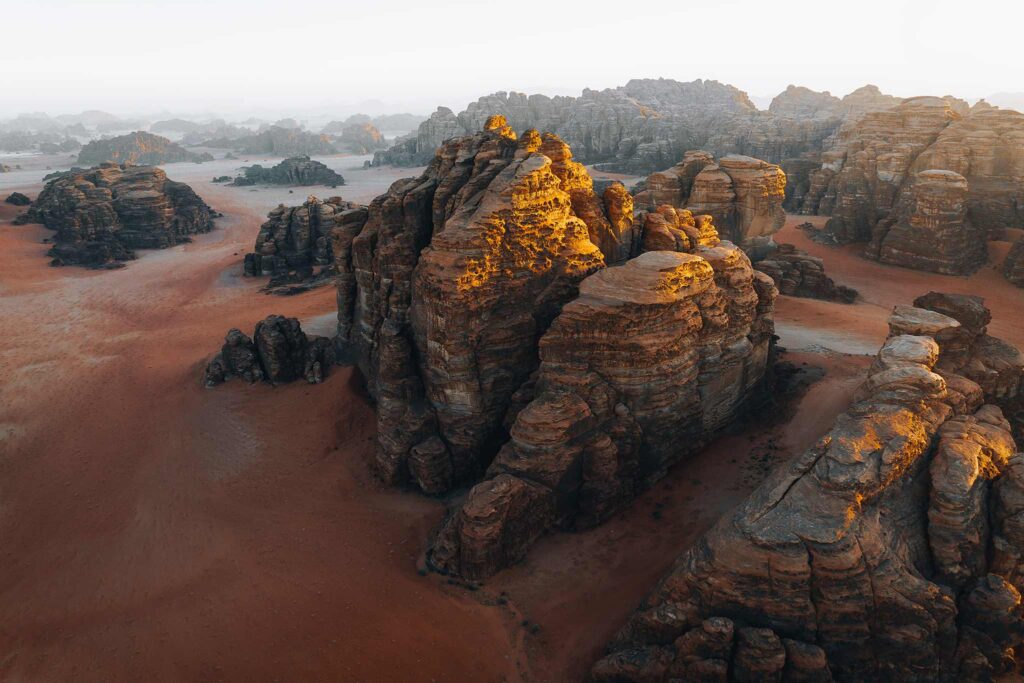Skift Take
As eco-conscious travel gains traction, destinations worldwide face the task of converting sustainability rhetoric into reality. NEOM aims to substantiate its environmental commitments through action. Ultimately, transparency will be the critical factor in earning traveler trust.
This sponsored content was created in collaboration with a Skift partner.
Amid rising concerns for climate change, the tourism industry is being pushed towards major improvements as travelers increasingly choose environmentally friendly practices. According to Skift Research’s Sustainability and Remote Work report, people are increasingly willing to take personal actions that prioritize green travel. However, “sustainability” has often been used as a marketing buzzword in recent years, and destinations now face the challenge of moving beyond rhetoric to create meaningful change. Transparency and accountability are key as travelers become more informed and aware of their environmental impact.
SkiftX spoke with Niall Gibbons, managing director of NEOM Tourism, to understand how NEOM is navigating the changing landscape of traveler demands and the steps it’s taking to ensure that the region actualizes its commitment to environmental care.
SkiftX: What attracted you to the role of managing director of NEOM Tourism?
Niall Gibbons: During my 21 wonderful years at Tourism Ireland, I always kept attuned to global travel trends. As we came out of the pandemic, I was reflecting on what a post-COVID world would look like — and out of the blue, a conversation struck up with NEOM. I was captivated by their vision statement: “The land of the future where the greatest minds and best talents are empowered to embody pioneering ideas and exceed boundaries in a world powered by imagination.”
The driving force behind my decision came when I met the team and saw the chance to add my tourism knowledge to the team’s mission: to create the most ambitious tourism project the world has ever seen. And in NEOM, we have all the elements to make that a reality.
SkiftX: Given your background as the CEO of Tourism Ireland, can you share some key learnings or insights about global travel trends that are now shaping your approach at NEOM?
Gibbons: I came into Tourism Ireland in the early 2000s, which was a turbulent time for the industry. I’ve seen numerous economic ups and downs, and the key takeaway has been how important it is to conduct research to measure consumer sentiment and uncover how it’s evolving.
Post-COVID, we’re observing trends such as a desire to travel to off-the-beaten-path destinations, an increased focus on wellness, and an interest in local cuisine. ‘Set-jetting,’ or visiting locations where TV shows and movies are filmed, is also an emerging theme.
These trends are shaping my approach at NEOM, which offers several distinctive regions, including Sindalah, our luxury island in the Red Sea opening in 2024, THE LINE, and Trojena — a year-round mountain destination that will host the 2029 Asian Winter Games — to name a few.
NEOM’s offerings, which are already under construction, are rich and diverse, and as a destination, we’re on a journey toward sustainability. We’re creating a unique and authentic experience, and we’re starting with a blank page, which is incredibly exciting.
SkiftX: Can you share the main strategies driving NEOM’s focus on sustainable tourism? What are the key elements that will differentiate NEOM’s approach to sustainability from other global destinations?
Gibbons: We’re being guided by the Saudi Vision 2030, which aims to diversify the economy by shifting away from oil and emphasizing tourism and sustainability.
The unique aspects of NEOM’s sustainability efforts include being powered by 100 percent clean energy, including solar, wind, and hydrogen. We’re not just striving for zero carbon — we aim to establish the world’s most regenerative travel destination. To do this, we’re harnessing sustainable design principles, replenishing the land, repopulating wildlife, and regenerating coral.
Additionally, we’re building destination management tools and data systems to measure and track tourism activities and make them regenerative. With the world’s first holistic travel impact calculator, travelers will be able to create dynamic itineraries and make values-aligned choices to ensure every step they take is for good.
What also sets NEOM apart is our unwavering commitment to protecting and restoring nature, with 95 percent of NEOM’s land and sea set to be conserved. The NEOM Nature Reserve’s regreening and rewilding program has already shown great success within its first six months, with four Arabian oryx calves, eight Nubian ibex kids, and 25 Arabian sand gazelle fawns born in the first breeding season. This marks a significant moment in our sustainability journey and offers an authentic story for future tourists.
SkiftX: Sindalah will be NEOM’s first bookable destination. What makes it a unique and attractive proposition for the discerning traveler?
Gibbons: Sindalah Island opens next year. The fact that it’s the first physical showcase of NEOM is appealing in itself, but its uniqueness is unquestionable in both its location and offering. It has year-round sunshine and will be an exclusive gateway to the Red Sea, welcoming the global yachting community and scuba-diving and snorkeling enthusiasts attracted by the rich marine life, including 600 native species.
Visitors looking for exquisite luxury can enjoy a range of experiences, including world-class hospitality, a beach club, a yacht club, a spa and wellness center, and luxury retail options, all built with care around the natural environment.
Just a boat ride away from Sindalah, mainland NEOM will offer visitors the chance to explore the region’s desert attractions. Striking sandstone formations, ancient rock inscriptions, and unforgettable sunsets just scratch the surface of what NEOM’s nature has to offer.
SkiftX: Can you tell us more about some of NEOM’s sustainability initiatives?
Gibbons: Transparency is a critical part of addressing questions around sustainability for any destination. As a result, we’re committed to showcasing the tangible steps we’re making to meet our sustainability objectives.
We’re building circular economy principles into everything we do, ensuring that all products are designed to be used, fixed, and reused multiple times before they’re recycled or turned into something else. Even the water infrastructure at NEOM will be optimized, with a zero-waste desalination plant that recovers rare earth minerals and metals from water to minimize strain on the water line and reduce water loss. Residents will be part of a community that’s setting new standards for sustainable living.
NEOM will also house the world’s largest carbon-free green hydrogen plant, located in the industrial city of Oxagon — construction will start in 2026. Hydrogen is a leading opportunity for sustainable energy production because it emits only water vapor and warm air. By leveraging it as a fuel source, we’ll set the stage for energy sectors around the world to transition to carbon-neutral fuels.
SkiftX: What is NEOM’s current state, and what can travelers expect as it develops over the next few years?
Gibbons: NEOM is unforgettable and warrants repeated adventures. We’re laying the foundations to ensure this happens, with the construction of major projects like THE LINE, Trojena, and Oxagon underway, and Sindalah rapidly taking shape.
NEOM is a hive of activity. Our colleagues across our various business sectors and regions are discovering and preserving ancient cities and artifacts and innovating energy, technology, and transportation to make NEOM’s vision possible.
We’re also enhancing accessibility, including completing our international airport in the coming years. With such developments, travelers can expect to easily connect from wherever they are and seamlessly step into the mountains, desert-scapes, or crystal-clear waters that characterize NEOM’s diverse landscapes.
SkiftX: How do you see NEOM contributing to the larger narrative of Saudi Arabia’s tourism vision?
Gibbons: As a major tourism destination, NEOM will support the Kingdom’s objective of attracting over one hundred million visitors to the country by 2030. Tourism will play a critical role in the economic diversification of Saudi Arabia, and NEOM will ensure that visitors will have unparalleled experiences that center around sustainability.
The one thing I’ve learned over the last 21 years is that global tourism doesn’t stand still. We’ll continue to conduct research as the world changes to ensure that NEOM continually evolves and adapts as travel does. We’re not just setting a new stage for tourism, after all. We’re redefining what tourism can do — it can be a catalyst for changing the world.
For more information about NEOM, visit NEOM.com.
This content was created collaboratively by NEOM and Skift’s branded content studio, SkiftX.
Have a confidential tip for Skift? Get in touch
Tags: environment, neom, SkiftX Showcase: Destinations, sustainable tourism, transparency
